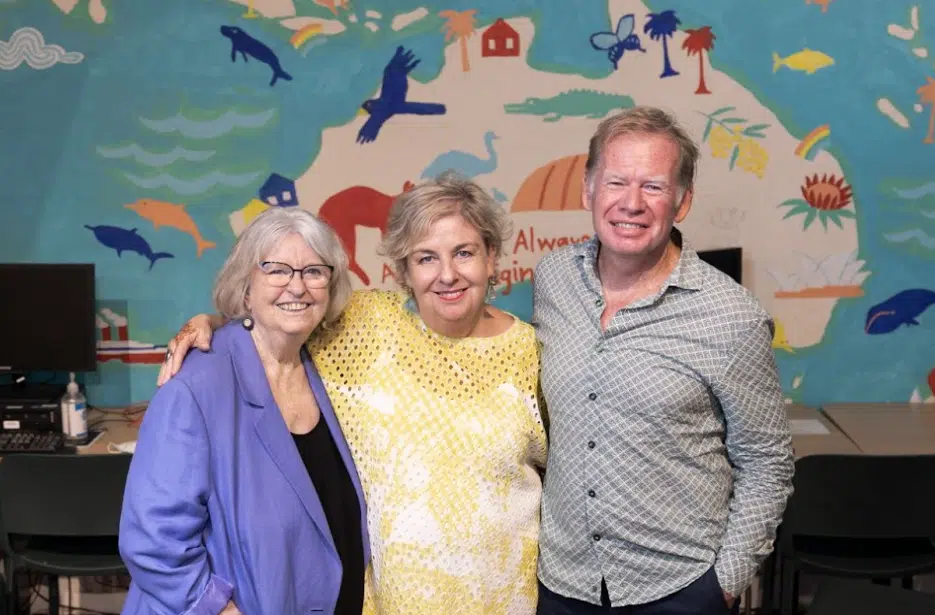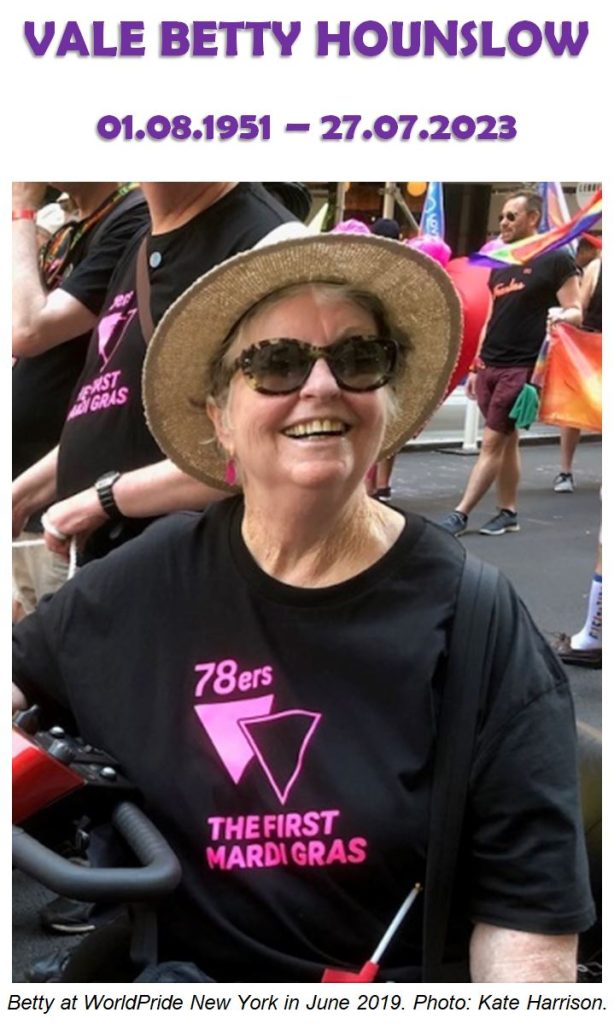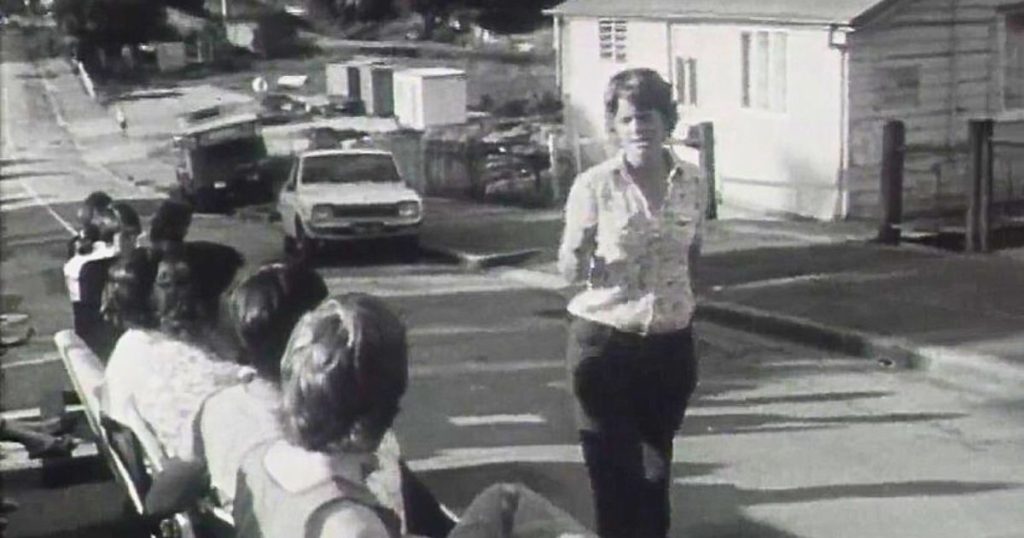Betty Hounslow who died in Sydney on 27 July after a short illness was a lifelong political activist who devoted her enormous energy and formidable intellectual ability to a wide range of progressive and social justice-based campaigns and organisations.
All her life Betty worked with and advocated for the many people in our society with little voice and power in the face of big and uncaring governments, bureaucracies, and corporations.

Betty was a socialist, a feminist and a committed trade unionist who had been active in the Communist and the New Left Parties. Her obituary in the Sydney Morning Herald said that she “was a lifelong social and political activist with a deep commitment to social justice and humanity. During her long and active life, she assisted women, including women in prison, the LGBTQ community, immigrants and asylum seekers, and many marginalised groups at odds with society. She worked for foundations, sat on and chaired boards, lobbied governments and campaigned ceaselessly for justice.”
Betty was strongly involved in the movement for LGBTQ rights. She was one of the participants in the first Sydney Mardi Gras Parade in June 1978, when the marchers faced police brutality and arrests. She was active in the community campaign to defend those arrested, helped organise the 1981 Mardi Gras and later became an active member of the First Mardi Gras 78ers Committee.
Her dedicated commitment and highly effective work for a wide range of organisations in the community and social justice sectors has been recognised by the many tributes paid to her life work by those organisations and by speakers at a large memorial gathering held in Glebe Town Hall. In 2013 she was awarded an Order of Australia for her work.
Such tributes have included from the Australian Council of Social Service (ACOSS), where Betty served as Executive Director from 1994 – 2001, a time of great challenge through the early Howard Government years, yet significant social progress.
Others have been from the Asylum Seekers Centre, the Public Interest Advocacy Centre, Union Aid Abroad- APHEDA, the LGBTQ community and the Search Foundation.

Amidst all these significant tributes, it is also important to remember the important contribution Betty made to community organisations in Brisbane at a young age. Although she spent the last almost fifty years of her life in Sydney and on the national stage, she was born and lived her early years in Doomben and received her formal education at All Hallows School and University of Queensland.
Memories of Betty by those who knew her in Brisbane are that she was a strong, committed person of great intellect and ability, a determined fighter for justice who never backed away from a confrontation with those in power if required. Though she was tough and could be confronting, she is also remembered for her warmth, kindness, generosity and support for those she worked with or represented. Betty had a great sense of humour, was good company and left an impact on all who knew her.
Julie Allen from the Sunshine Coast knew Betty around 1970 when both were in local Christian social justice groups together. Regarding Betty as an influential mentor, Julie has written: “I was only aware later of some of what Betty went on to do in her own life in addressing poverty in Cambodia and in working for the Fred Hollows Foundation and for ACOSS, standing with asylum seekers, and working tirelessly for gay rights and the Mardi Gras Movement. Knowing her in those younger days, I am gratified to learn more about her achievements and how she continued to be hugely influential in all those struggles for a better world, as her determination to be a change agent was strikingly apparent from very early in her life.“

As I thought about Betty, I was reminded of what Matthew Fox says: “Political movements for justice are part of the fuller development of the cosmos … Liberation movements are a (further) development of the cosmos’s sense of harmony, balance, justice and celebration.”
“I celebrate Betty’s brave life in which she did so much that was principled, compassionate and noble. I am deeply grateful for her positive impact on my own life and on that of so many people, and I mourn her passing, but with huge admiration and appreciation for what she did.”
Betty studied for a Diploma in Education at UQ in 1973. Together with some other colleagues, it was a great experience to have Betty in the course with us as a good friend and born leader. She was a strong speaker, with a great command of language in all its forms, and the ability to put together a clear, convincing argument. She was part of, often leading, every effort to make the course more relevant for us and for the students we were being prepared to teach. She would have made a great teacher, loved by students and worker colleagues. I am less certain how well the education bureaucracy would have coped. Instead of taking up a teaching position, Betty became the co-ordinator of the Brisbane Freeway and Compensation Committee.
In this role, she is well remembered by many people who were involved in the struggles for social justice and human rights against the Bjelke-Petersen government of the 1970s and 1980s. She was a courageous and determined leader of the significant protest movement against the proposed Northern Freeway. This broadly-based community and environmental struggle was to stop the freeway destroying a small, working class community in Bowen Hills, without any consultation with those affected and very inadequate compensation for the residents whose houses were resumed.
The campaign put up a prolonged struggle over several years, including the occupation and reuse of those houses already resumed. This led to a brutal confrontation by the government and police with evictions and arrests. The Truth, a Brisbane newspaper of the time ran the heading: From Convent to Street Brawl, reflecting the fact that Betty had some years earlier spent a short time training with the Sisters of Mercy.
Marg O’Byrne, now living in Fremantle, recalled those events in Bowen Hills.
“I knew Betty from the anti-freeway movement in Brisbane in 1974 when I lived next door to her in one of the houses in Markwell St, Bowen Hills. Betty was a force to be reckoned with. A real fighter – articulate, courageous and determined. Her political leadership galvanised the movement, but it was her humanity and down to earth ability to communicate with the residents of that working class suburb, that inspired ordinary people to take extraordinary action and resist the onslaught of the Bjelke-Petersen regime. I’m proud to say I was with Betty in an anti-freeway demo on the day the police charged the protesters. It was frightening, unnecessary and violent. Betty was so courageous.”

Further information about the significance of those protests are available on the State Library of Qld Anti-Freeway Protest Digital Story interview with Betty and Tom O’Brien, the initial Secretary of the Anti-Freeway Movement, recorded in 2019. Also the Bush Workers Telegraph edited by Ian Curr contains an obituary for Betty and more detailed information, including the Peter Gray film, The Battle for Bowen Hills. The Northern Freeway was not built; residents had won but the government had demolished a large part of the neighbourhood. Importantly though, the campaign was one of the first major discussions and actions in which residents of Brisbane demanded a real say in the town planning future of their city,
Many of Betty’s friends locally and all those who work for social justice will mourn her passing away but celebrate and long remember with admiration a life of commitment and purpose, so well lived. My condolences to Betty’s partner Kate Harrison, to her sisters Mary and Margaret Hounslow and to her extended family.
Tim Quinn is a friend of Betty’s who studied with her in 1973. He was a member of Brisbane City Council from 1985 to 2004 with a strong interest in town planning and was Chair of Urban Planning Committee for twelve years.
Cover image, screen shot from State Library of Qld Anti-Freeway Protest Digital Story interview


